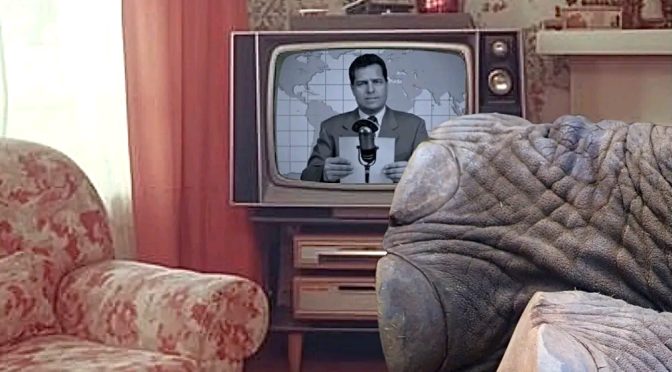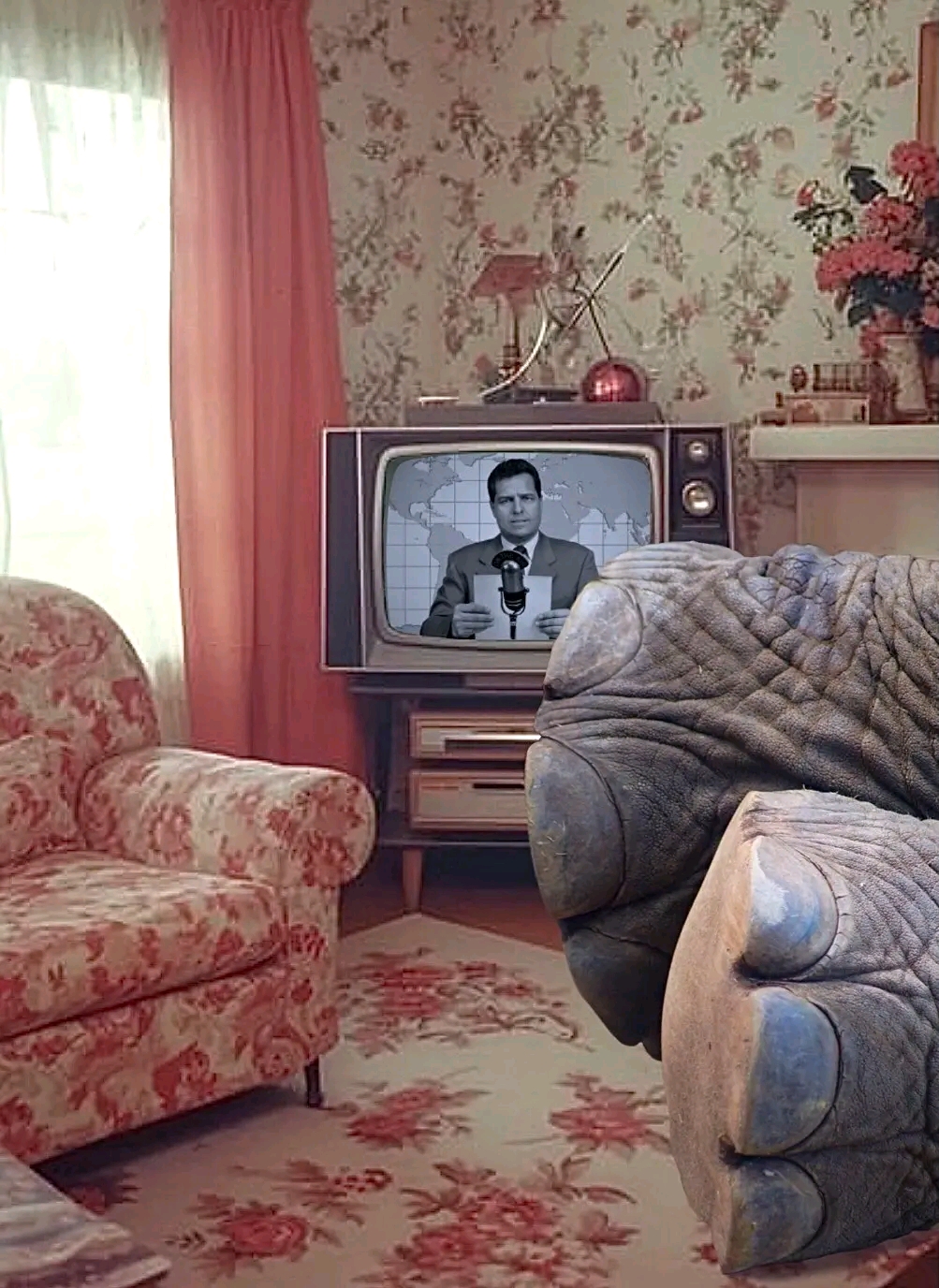By the time I was ten, my Mum’s alcoholism and depression had become the elephant in every room of our house.
In 1976, my mother was forty five and had fallen into a deep depression. Just a year earlier in 1975, when we lived in the motels along Kingsway, she’d be up and dressed and fairly interactive during the day. But by 1976, most of her day was spent sleeping on the livingroom couch. She just lay there all day, giving up on everything.
We never knew what terrible event or awful realization had brought her to that low point, and I don’t remember my Dad trying to rouse her very much. She was just unwell and non-participatory, among us but not part of us, lodged in her own depressive retreat from reality. Looking back with benefit of forty years of reflection, I can see her emotional fall as a personal culmination of her lifelong struggle with depression.
From my middle-aged vantage point, I can interpret my mother better as a whole person, burdened with regrets about how her life and personal fortunes had finally turned out. Along with her mental illness, she had also struggled with some real hardships and losses in her life: In 1965, in the year before I was born, she’d survived a terrible house fire, suffering third degree burns on her face and both arms that required skin grafts. As a young woman in her twenties in the 1950s, she’d been known for her beauty. My father, and anyone else who knew her in the 1950s would aalways remark on how beautiful she’d been.
As a curious kid, I rooted through boxes and photo albums in our basements, eagerly consuming her image in numerous black and white photos shot by her father. She’d been an only child, and my mother had been the apple of her father’s eye – his undeniable pride and joy – and he documented her upbringing in hundreds of still photos.
To my curious eyes, I saw in her youth the same sort of glamour that I’d seen in old-time movie stars like Judy Garland or Vivian Leigh. In fact, she actually resembled those actresses. She was truly that beautiful. Seeing photos of her with her perfect skin and her hair piled up high on her head, posing like a model for the perfect headshot, I felt like my mother had once been some kind of a star. She sang beautifully, whether in operatic or popular styles, she played the piano, the accordion, and the violin, and she sang and acted in local musical theatre in her hometown of Victoria, with the local Gilbert and Sullivan Society, and the Starlight Theatre Company. It was like seeing a different person who’d had a completely different life in another world. It was her old world.
By the early 1970s, my Mother’s own mother died from cancer, which was a difficult loss to her and her father Ernest. In 1978, Ernest passed away, and that loss was devastating to Mum.
I only have a couple of memories of any sorts of exchanges with my mother during this time. Sometimes, she’d be conscious enough to yell at me to do the dishes when I came home for lunch (I didn’t do any dishes, but made myself a sandwich and left as quickly as I could). Another time, my sister noticed our mum writing something on her palm with an invisible pen. “What are you doing Mummy?” Kim asked. “I’m signing autographs, dear.” That was a delusional manic episode.
Not knowing what to expect from her caused in me a dread of coming home, and of being at home. For all intents, we had no mother in our home, just an upset alcoholic woman who was deeply depressed, mentally withdrawn, and difficult to predict.
In her youth, our mother Angela had been diagnosed with manic depression, which today we call bipolar disorder or bipolar depression. Since her twenties, she’d struggled with alcoholism, and by her mid-life, what had once been used as self-medication, possibly to tamp down her manic episodes, had become a well she’d dug herself into. But she never left our house, so where was her alcohol coming from?
She hadn’t bought her own booze in years (Port was her favourite), so looking back, I suppose that our father’s alcoholism was supporting hers. Maybe some of her yelling fits were even from withdrawal, I don’t know. Maybe my Dad figured that it was easier to keep her supply going in the fridge and let her stay bombed and relatively docile than to rouse or agitate her. Just let her be and “self-medicate”…
My Dad was an alcoholic, but a functional one. No matter how drunk he got or how hungover he might have been in the morning, he was never late to work and rarely ever took a sick day. He kept our family intact materially. He kept the roof overtop and food in the fridge. We had the basics of life from the outsider’s view, but we were a deeply sad and emotionally exhausted family that was just going through the motions.
Maybe Dad needed to use alcohol to dull his own senses to the reality of his wife’s gradual slide into darkness. Nobody ever acknowledged any of it. Reality was to be ignored or glossed over; hidden from the eyes of others. “Don’t air our dirty laundry in public” was Dad’s angry warning to me and my sister.
By 1977, Mum’s drunken depression had almost killed her, and had left her with permanent brain damage and memory loss. She never lived with us after that, and had a different tone to her personality – she wasn’t the same person, and didn’t seem to recognize or respond to us in the same way she once had.
By 1983, Dad’s poor health finally gave out too, and he suffered a serious heart attack and multiple strokes. They both survived, but lived most of the remainder of their years in various hospitals. That was the final dissolution of our little family unit.
There was some degree of physical recovery for each of them, but no real clarity on their psychology for me and my sister. Still, nobody explained or admitted to anything, or took responsibility for their actions.
The elephants were just no longer there.




